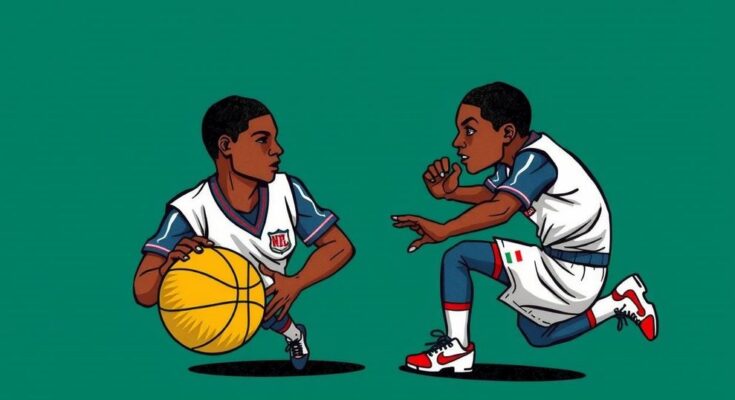The UN Special Rapporteur on cultural rights, Alexandra Xanthaki, has called for the eradication of discrimination in sports, urging states to dismantle stereotypes and foster inclusivity. She emphasized accountability for sports associations in upholding human rights and criticized current discriminatory practices. Xanthaki insisted that sports should be accessible to all, highlighting a need for cultural campaigns promoting diversity and an inclusive environment.
In a powerful address to the UN General Assembly, Alexandra Xanthaki, the UN Special Rapporteur on cultural rights, urged nations to dismantle stereotypes in sports, advocating for inclusivity and non-discrimination. She insisted that states must actively eradicate biases rooted in gender, ethnicity, legal status, and age, emphasizing the need for accountability in sports associations regarding human rights. Xanthaki rejected the notion of neutrality in sports when human rights are at stake, highlighting the prevalence of double standards at elite levels. Sports organizations must create avenues for redress for both historical and present injustices, ensuring collaboration with victims and civil society. She pointed out that discriminatory measures such as blanket bans based on nationality or gender identity violate human rights standards, calling for a reassessment of policies restricting women’s competition. The right to participate in sports should be safeguarded for all, with states and associations fostering an inclusive, protective environment. Furthermore, Xanthaki urged for campaigns promoting diversity and countering prejudices within the media to enhance acceptance. She exploited the cultural rights approach to probe into biases in sports, emphasizing fair representation in decision-making and promoting societal benefits through sports. Special Rapporteurs, like Xanthaki, are appointed by the UN Human Rights Council as independent advocates tackling specific global human rights challenges. Fulfilling their roles on a voluntary basis, they analyze issues without attachment to governmental or organizational influences, focusing solely on their mission to amplify marginalized voices.
The issue of discrimination in sports continues to affect athletes globally, with many facing barriers due to various biases. The call for action by the UN Special Rapporteur highlights the need for comprehensive policies that uphold human rights, ensuring that sports serve as a unifying force rather than a divisive one. By addressing stereotypes and harmful practices, sports can become more inclusive, offering equal opportunities regardless of background or identity.
Alexandra Xanthaki’s call to action serves as a crucial reminder that sports should be a domain of inclusivity and equality. Her emphasis on the necessity for states to eliminate discrimination, ensure accountability in sports associations, and promote diversity signifies a pivotal step toward a more equitable future. The focal message is clear: every individual should have the right to participate in sports free from bias and discrimination.
Original Source: news.un.org



